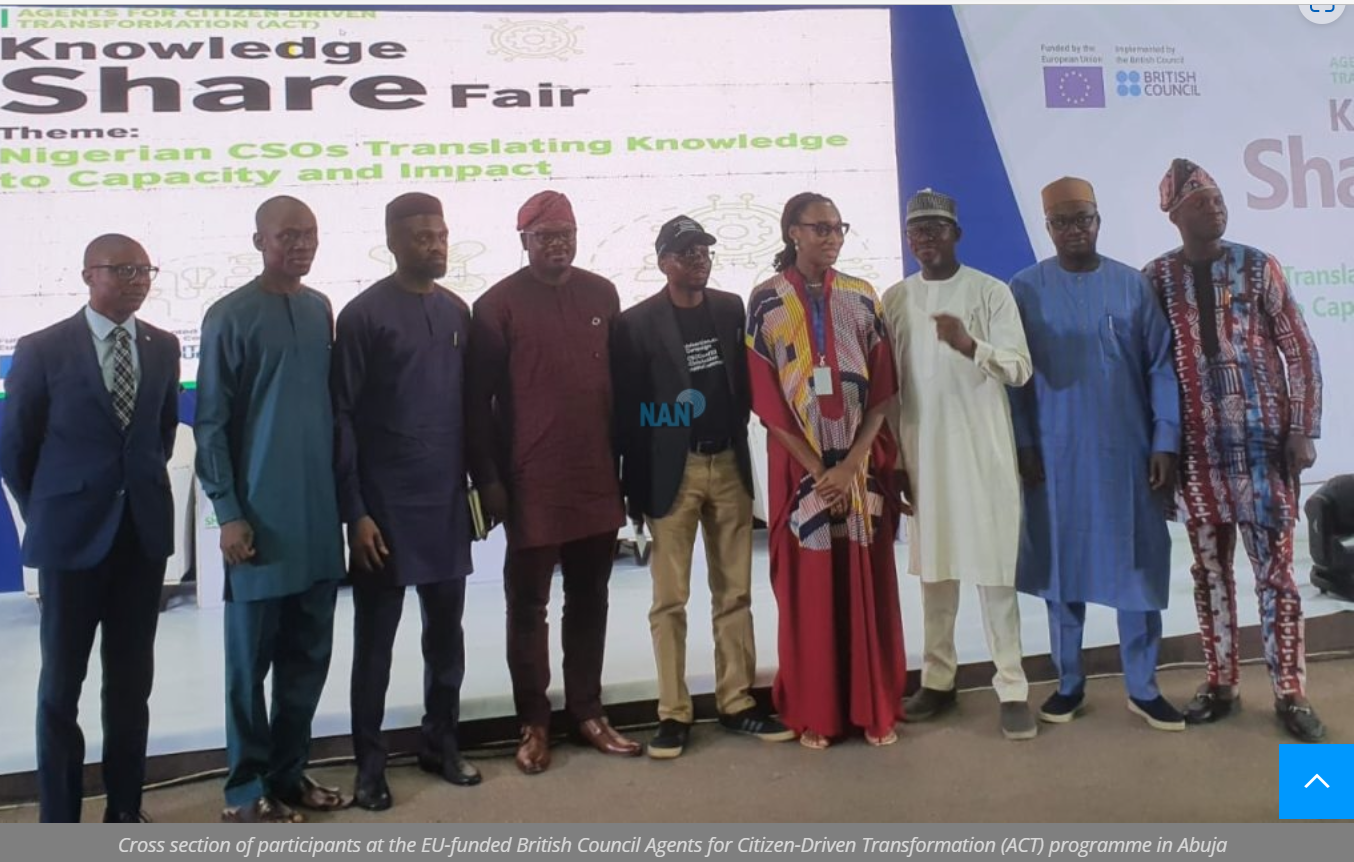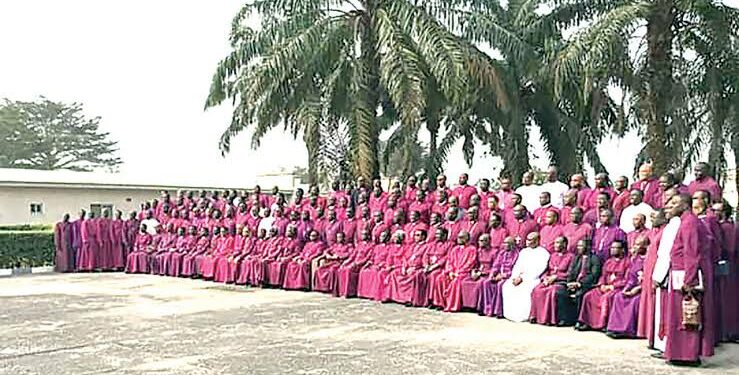The British Council through the European Union-funded Agents for Citizen-Driven Transformation (ACT) Programme, has advised the Civil Society Organisations (CSOs) to promote compliance to legislative and regulatory requirements, self-governance, and transparency among others.
The Country Director, British Council, Lucy Pearson stressed this on Thursday, in Abuja while it assembled 200 CSOs at a discuss titled Knowledge Share Fair.
The theme of the discus is “Nigerian CSOs Translating Knowledge to Capacity and Impact” harped on compliance to legislative and regulatory requirements, self-governance, and transparency among others.
The News Agency of Nigeria (NAN), reports that ACT works in partnership with CSOs in 10 states across the six geo-political zones in Nigeria.
The states are Adamawa, Borno, Edo, Enugu, Kano, Lagos, Plateau, Rivers, Sokoto and the Federal Capital Territory (FCT).
ACT supports the capacity development of CSOs in Nigeria to become more effective and credible agents of sustainable development among others.
According to Pearson one of the programme’s focus is to help citizens to contribute towards inclusive and open society.
She said the programme had assisted CSOs from the 10 focal states since 2019 in the area of training, coaching and mentorship.
Pearson said the knowledge share fair was organised to “enable CSOs that benefitted from the programme over the years to share with others.
“The fair is also organised to help find solution to challenges affecting CSOs in Nigeria.”
The country director assured of British Council’s commitment to contributing to inclusive, open and prosperous society.
The ACT National Programme Manager, Mr Damilare Babalola said the knpwledge share was organised to allow CSOs share their learnings and experience on the programme.
“Today’s event is meant to ascertain how the programme has translated to tangible results and impact on the various organisations and communities.
“The British Council wants an inclusive society and sustainable development, “he said.
Mr Oyebisi Oluseyi, Executive Director, Nigeria Network of Non-Governmental Organisations(NNNGO) said CSOs in Nigeria had been faced with issues of trust, transparency and accountability in recent times.
He said the body was not unmindful of the fact that some CSOs might not be credible.
According to Oluseyi, who was a keynote speaker at the event, NNNGO is working with relevant stakeholders to purge the sector of any CSO found wanting.
While thanking the British Council for the ACT Programme, the executive director said there was a need for CSOs to comply with regulatory requirements.
“Data has shown that about 95 per cent of CSOs are using their own resources and only between three and five per cent of the CSOs have access to funds from donors.
“It is also important to note that CSOs are voluntary, self-governing and not for profit in nature.
“But be that as it may, the moment you are registered with the Corporate Affairs Commission(CAC) as a body you have become public and should be ready to abide by the rules” he said.
He equally said it was important for regulators to minimise the demands on CSOs, adding that CSOs complain of parting with a “chunk of their budgets to regulators, leaving them with meagre amount.’
He said CSOs also complained of not meeting up with their obligations as a result of that.
Mr Erinomo Temilope, Chief Superintendent of the Economic and Financial Crimes Commission (EFCC), said the EU-ACT Programme had assisted the commission to extend its mandate.
Temilope, who is from the Special Control Unit against Money laundering, said, “We appreciate the platform provided to reach out to where we might not be able to reach.”
NAN reports that the event was attended by government agencies like the Pension Commission (PenCom), Federal Inland Revenue Service(FIRS) and other relevant stakeholders.
The high point of the event was the gallery tour, documentary show and exhibition among others.
(NAN)









